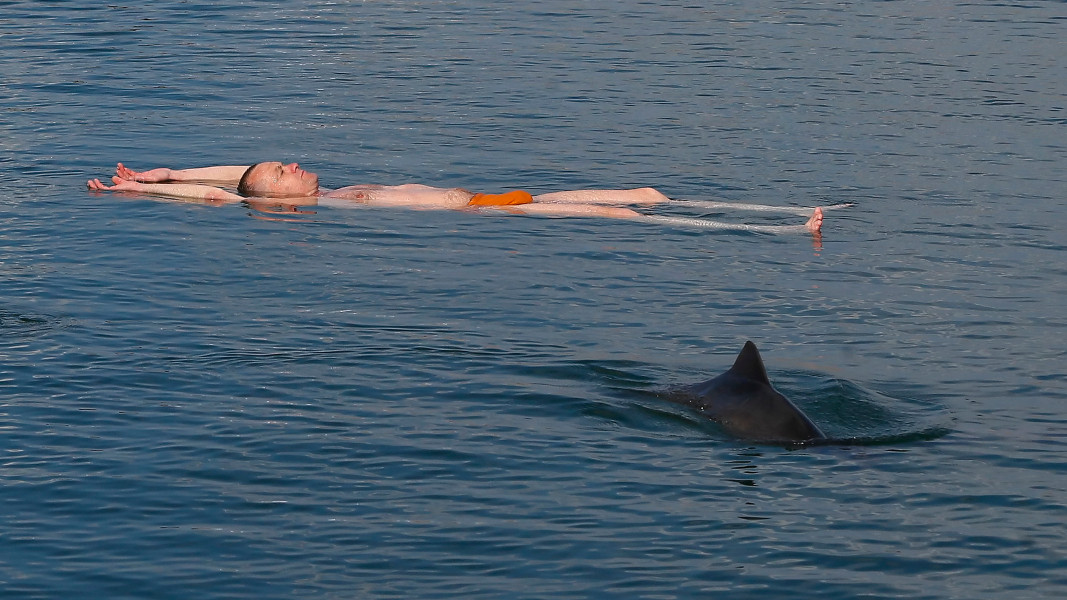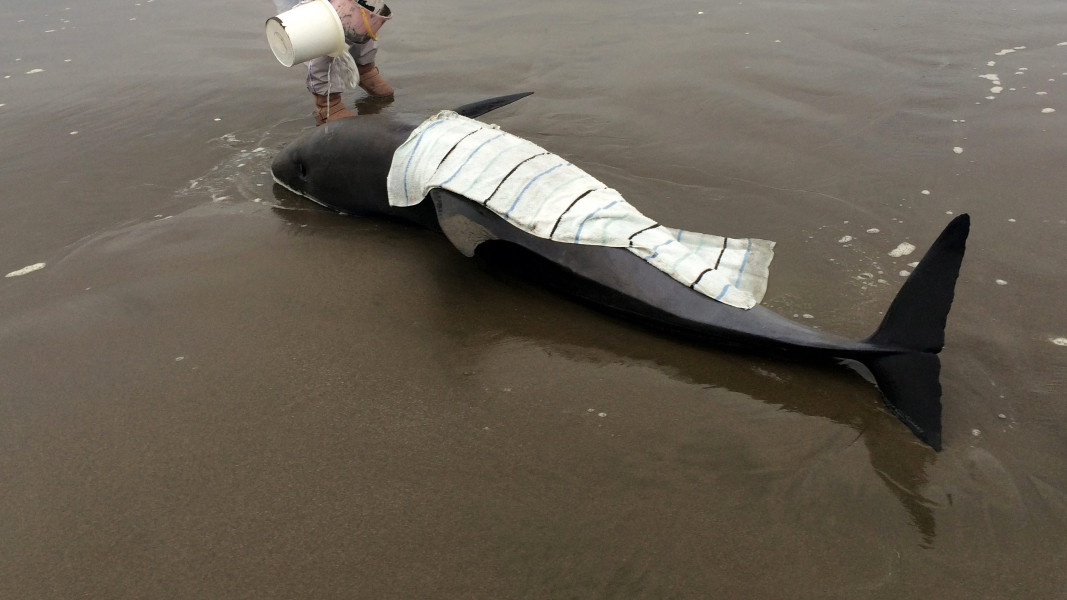In the spring, dolphin population monitoring activities in the Black Sea resume. Three species of marine mammals that are protected by law are found in Bulgarian waters - the common dolphin (Delphinus delphis, also called the white-bellied dolphin), the harbour porpoise (Phocoena phocoena) and the bottlenose dolphin (Tursiops truncatus).
 The dolphin population is observed after the end of winter. For this purpose, high-frequency recorders are used to monitor cetacean sounds underwater. Four such hydrophones, provided free of charge by an English company, have been placed at various locations along our coast - three of the devices are tied to mussel farms and one to a fishing weir, with the permission of the fishermen.
The dolphin population is observed after the end of winter. For this purpose, high-frequency recorders are used to monitor cetacean sounds underwater. Four such hydrophones, provided free of charge by an English company, have been placed at various locations along our coast - three of the devices are tied to mussel farms and one to a fishing weir, with the permission of the fishermen.
As early as last spring, a migration of dolphins and porpoises from the northern to the southern parts of the Black Sea was reported. "The cases of disoriented and dead dolphins washed up on the coast have increased," Galina Meshkova from Green Balkans told BNR-Varna:

"There are also increasing cases of beaching of common dolphins - live cetaceans that have washed ashore, which is very uncommon. This is probably a consequence of the war in Ukraine because the incidents started at that time, but we can't say for sure until the inner ear of the dolphin carcasses are examined."
Last spring also saw an increase in cases of drowned dolphins entangled in fishing nets, which is also unusual for the Black Sea:
"Fishermen are not to blame for the fact that porpoises usually drown in groundfish nets. There are usually fewer drowned dolphins in the spring than in the summer. But last year here, and in Turkey, it was the other way around," says Meshkova.
When citizens spot a distressed dolphin in the water, they should report it to the Regional Environment and Water Inspectorate.
 If the animal is stranded in the shallows, on the sand by the sea and in direct sunlight, we can help by providing shade with an umbrella or cloth until an expert arrives. The dolphin's skin should be moisturised periodically, experts advise, as it is very fine and cracks and sores form when it dries. This can be done by covering the mammal's body with a soaked towel or blanket, or even with wet seaweed. Keep it moist to prevent the skin from drying out in the sun. Do not cover or allow water to pass through the nostril at the top of the head, as this will cause the dolphin further suffering and may even kill it.
If the animal is stranded in the shallows, on the sand by the sea and in direct sunlight, we can help by providing shade with an umbrella or cloth until an expert arrives. The dolphin's skin should be moisturised periodically, experts advise, as it is very fine and cracks and sores form when it dries. This can be done by covering the mammal's body with a soaked towel or blanket, or even with wet seaweed. Keep it moist to prevent the skin from drying out in the sun. Do not cover or allow water to pass through the nostril at the top of the head, as this will cause the dolphin further suffering and may even kill it.
Based on a story by Alexander Yordanov, BNR-Varna
Photos:EPA/BGNES, BGNESAccording to a 2023 National Statistical Institute study, more than 88% percent of households in Bulgaria have access to the Internet. Most users are online every day, and more than 95% are active on social networks. The share of people who read the..
Radio Bulgaria, as a program of the BNR published in 11 languages, has an audience spread over six continents. Part of it has a special attitude towards our country and wants to learn more about its history, culture, traditions and..
The international initiative No Elevators Day will be celebrated today with a climb to the fourteenth floor of the College of Tourism in Burgas. Anyone who wants to join in can test their physical strength by participating individually or in a team..
The 10 main risks are facing the country in the coming decade, shows a national expert study entitled "Ten years, ten risks for Bulgaria" , BTA reports...
Bulgaria is increasingly becoming part of the general trend and dynamics of European citizens changing their location. There are no..

+359 2 9336 661
